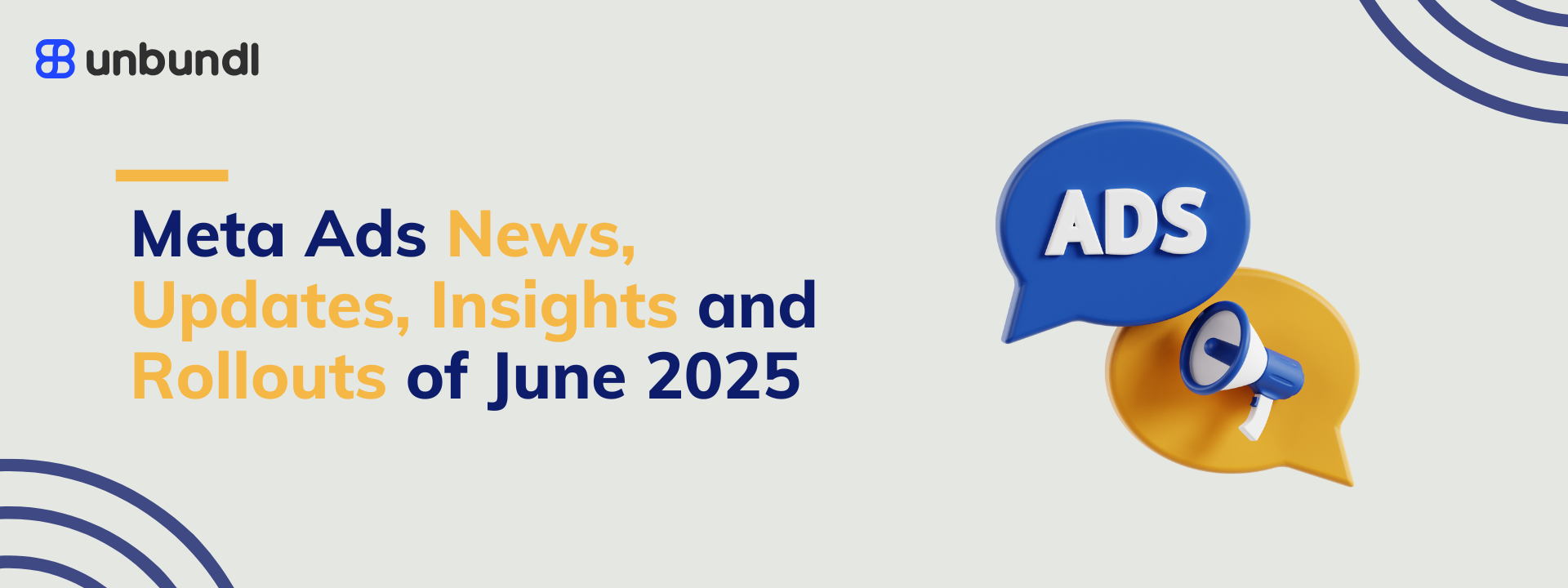Meta Debuts AI Tools to Revolutionize Ad Creativity at Cannes 2025
Meta introduced a new suite of AI tools to boost ad performance, personalization, and creative efficiency across its platforms.
Highlights:
-
Advantage+ Branding: Auto-applies brand assets (logos, colors, fonts) for consistent creatives.
-
AI Video Generation: Turns images into animated videos with scenes, music, and overlays.
-
Business AI in Ads: Provides in-ad support, recommendations, and voice interactions.
-
Engagement Tools: Custom CTA stickers and AI-powered virtual try-ons now in testing.
-
Results: Up to 22% increase in ROAS and 5% boost in conversions.
Meta’s latest AI push aims to streamline ad creation and drive better customer experiences at scale.
Meta Revamps Advantage+ Audience Defaults in API V23.0
Meta has updated its Marketing API, changing how the Advantage+ audience parameter functions in version V23.0.
Key Highlights:
-
New Default Behavior:
Theadvantage_audienceparameter now defaults to 1 (enabled) when creating new ad sets, unless explicitly set to 0 or 1. -
No Effect on Existing Ad Sets:
Only new ad sets are impacted; existing ones remain unchanged. -
Auto Opt-In Conditions:
The default applies when using:-
Default values for Age, Gender, Custom Audience Inclusion, and Detailed Targeting.
-
Relaxed targeting settings for these parameters.
-
-
Manual Override Required:
Non-default setups without relaxation settings must defineadvantage_audienceexplicitly to avoid errors. -
Recommended Action:
MAPI partners should test Advantage+ audience settings across campaign types, as it generally outperforms standard targeting.
This change aims to streamline campaign setup while improving ad performance through automated audience expansion.
Meta Tests Profit-Based Value Optimization to Improve ROAS
Meta is testing a new Value Optimization feature that prioritizes Return on Ad Spend (ROAS) based on profit margins rather than just purchase value.
Key Highlights:
-
Profit-Focused Optimization: Shifts from maximizing sales value to maximizing actual profit.
-
Conversions API Input: Advertisers can submit profit data via the Conversions API.
-
Smarter Ad Decisions: Enables Meta to prioritize higher-margin products over high-priced ones with lower returns.
-
Currently in Testing: Not yet widely available, but has the potential to enhance ad efficiency and align spend with business outcomes.
This move reflects Meta’s focus on performance-driven advertising aligned with real profitability.
Meta Launches 'Opportunity Score' for All Advertisers to Boost Campaign Efficiency
Meta has officially rolled out its AI-powered 'Opportunity Score' feature across all ad accounts, offering a new way to assess and optimize campaigns directly within Meta Ads Manager.
Previously available to select users, this metric now gives every advertiser a real-time score and actionable recommendations aimed at improving campaign structure and efficiency.
Key Highlights:
-
Score-Based Evaluation:
The tool assigns a 0-100 score based on how many of Meta’s AI-generated recommendations you apply—not on actual performance data. -
Real-Time Optimization Tips:
It offers instant feedback on campaign setup, identifying formatting issues, missing data, or policy violations. -
Backed by Testing:
Advertisers who implemented the recommendations saw a 12% median reduction in cost per result, according to Meta. -
Not a Guarantee:
The suggestions are predictive, not definitive, and should complement—not replace—human strategy.
Bottom Line:
Meta’s Opportunity Score is a helpful tool for refining ad setups, especially for advertisers looking to streamline execution. But strategic oversight is still key to achieving real performance outcomes.
Meta Sets 2026 Deadline for Fully Automated AI-Driven Ad Campaigns
Meta Platforms Inc. has announced plans to fully automate its ad creation and targeting processes using artificial intelligence by the end of 2026. The initiative is part of CEO Mark Zuckerberg’s long-term AI vision, reinforcing Meta's reliance on advertising, which contributed over 97% of the company’s revenue in 2024.
Key Developments at a Glance:
-
Full Automation by 2026
Meta aims to allow brands to create complete ad campaigns—from visuals and videos to text and targeting—entirely through AI tools, eliminating the need for manual ad development. -
AI-Powered Personalization
The system will dynamically tailor ads based on real-time user data, including location. For example, the same car ad could appear with a snowy mountain backdrop in colder regions and a city street in urban markets. -
Support for Small and Mid-Sized Businesses
This advancement is expected to especially benefit smaller advertisers with limited resources, offering them high-quality creative output and campaign management at scale. -
Concerns from Larger Brands
Major advertisers have expressed hesitation, citing potential loss of creative control and brand-specific quality, which may be difficult to replicate with AI-generated content. -
Integration with Third-Party AI Platforms
Meta is exploring partnerships with leading AI firms such as OpenAI (DALL·E), Google (Veo), and Midjourney to enhance its creative capabilities. -
Technical Challenges Remain
Despite progress, Meta acknowledges that current generative AI still struggles with distorted imagery and requires substantial computing power to scale high-quality, brand-specific content. -
Zuckerberg’s Vision for Advertising
The ultimate goal is a fully autonomous system where businesses simply define their goals and budgets, connect a payment method, and let AI handle everything, what Zuckerberg calls a “redefinition of the category of advertising.”
As the competition intensifies across tech giants, Meta’s roadmap underscores a future where AI doesn’t just support advertising—it completely powers it. If successful, the move could revolutionize digital marketing, reshaping how brands of all sizes engage with consumers.
Also read: Meta Ads News and Updates - May 2025
